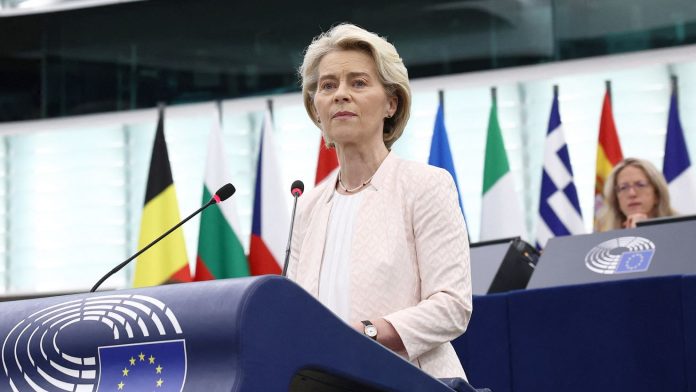The EU Court of Justice is preparing to rule on the case of secret correspondence between European Commission President Ursula von der Leyen and Pfizer CEO Albert Bourla regarding vaccine contract negotiations during the COVID-19 pandemic, POLITICO reports.
At stake are the principles of transparency in the European Union and the political reputation of von der Leyen, who has begun her second five-year term. The question being considered is whether such correspondence should be considered official documents and published.
The legal proceedings were triggered by the European Commission’s refusal to disclose the texts of text messages discussing the largest contract for the purchase of up to 1.8 billion doses of the Pfizer-BioNTech vaccine worth billions of euros during the pandemic. The correspondence was first mentioned in an interview with The New York Times in April 2021, where Bourla called the SMS exchange key to reaching an agreement. The lawsuit against the European Commission was filed by The New York Times and the former head of the publication’s Brussels bureau after they were denied access to the messages in 2022.
The European Ombudsman had previously recognised the European Commission’s failure to search for the messages as an example of “bad administration.”
European ombudsman Emily O’Reilly described the situation as a “wake-up call” for EU institutions and accused von der Leyen of creating a “culture of secrecy.” During the hearings, European Commission lawyers acknowledged the existence of the correspondence but claimed that the text messages were not relevant to the contract negotiations and were not subject to publication.
Lack of clear arguments
The judges criticised the European Commission’s position for its lack of clear arguments and insufficient transparency.
Lawyers for The New York Times said it was still unclear where exactly the messages were searched for and whether von der Leyen’s devices had been checked. Against the backdrop of the trial, the European Public Prosecutor’s Office is also investigating the circumstances surrounding the vaccine deal, and has already questioned European Commission officials.
Earlier, Ursula von der Leyen did not disclose her correspondence with the head of Pfizer during negotiations on the purchase of COVID-19 vaccines, which drew criticism from the EU ombudsman.
The Liège court has closed its investigation into allegations of corruption against the head of the European Commission in connection with the purchase of these vaccines.
